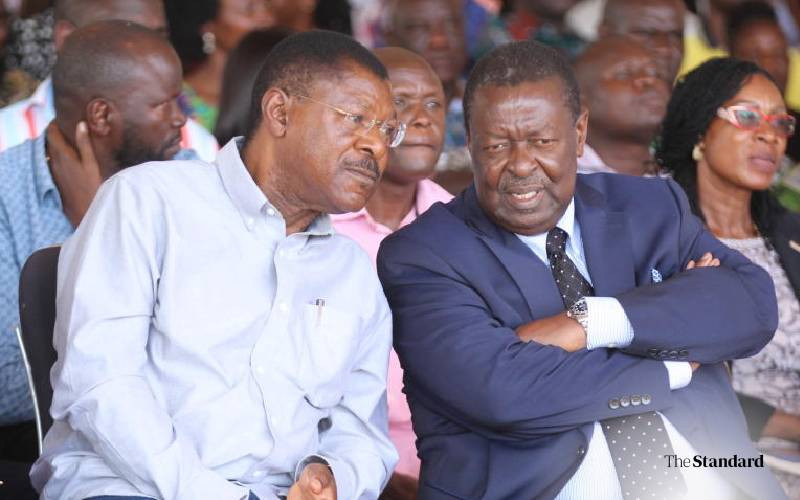Prime Cabinet Secretary Musalia Mudavadi and National Assembly Speaker Moses Wetang’ula have long been regarded as the most powerful figures in Western Kenya politics. Their roles in the Kenya Kwanza Alliance and close ties with President William Ruto cemented their national influence after the 2022 General Election.
However, their once-solid dominance is now facing serious tests. A new generation of leaders notably Trans Nzoia Governor George Natembeya and Saboti MP Caleb Amisi has emerged with fresh ideas and strong grassroots appeal. These leaders have increasingly become a thorn in the flesh for Mudavadi and Wetang’ula, challenging their political supremacy in the region.
Political analyst Albert Kasembeli observes that Mudavadi and Wetang’ula’s influence is being diluted as they are seen to have abandoned their backyard after joining government. “When they ascended to powerful positions, many in Western expected accelerated development and attention to local issues,” he said. “But that hope is fading.”
Governor Natembeya has particularly positioned himself as an alternative voice of unity within the Luhya community, actively engaging residents across Vihiga, Kakamega, Bungoma, and Trans Nzoia counties. His growing popularity has been boosted by endorsements from cultural elders in key Western counties.
Meanwhile, Mudavadi’s 2016 installation as the Luhya community spokesperson appears increasingly symbolic, with the title now seemingly up for contest.
Kakamega Deputy Governor Ayub Savula noted that the rising leaders are resonating more with the youth, a critical voting bloc. He urged Natembeya to engage them even more. “Young people want leaders who understand their struggles and are determined to help them,” Savula said.
As Western Kenya’s political landscape shifts, Mudavadi and Wetang’ula now face the daunting task of reconnecting with their base or risk ceding ground to a younger, more dynamic generation of leaders.

